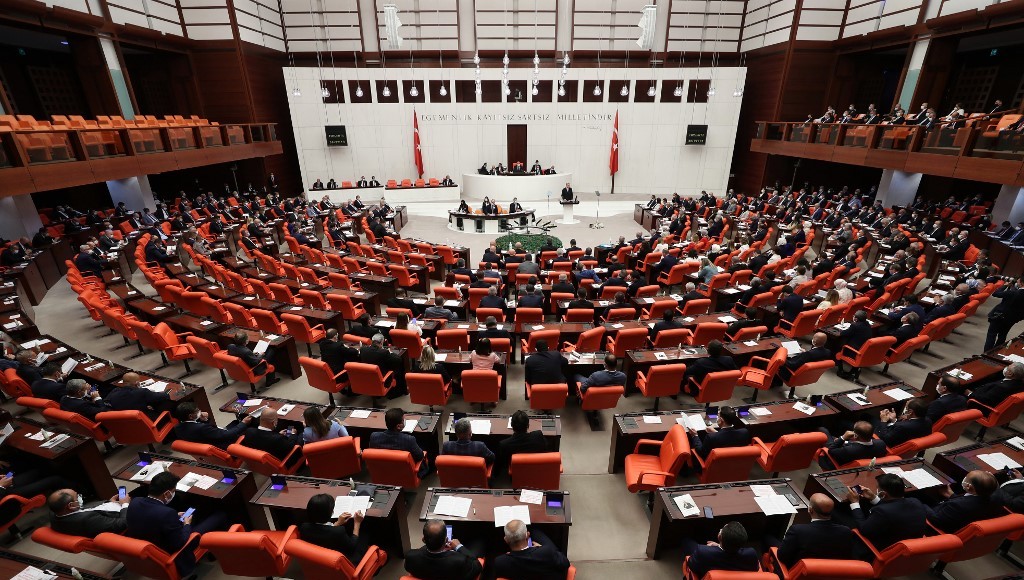Turkey’s ruling Justice and Development Party (AKP) and its ally, the Nationalist Movement Party (MHP), on Wednesday rejected a parliamentary motion to investigate the effectiveness of trade restrictions Turkey recently imposed on Israel and the negative consquences of the country’s ongoing trade with Israel on the people of Gaza.
The motion was filed by the opposition Felicity Party (SP).
The AKP government, which has faced growing criticism due to its continuing trade with Israel despite the war on Gaza, recently imposed trade restrictions on Israel, in a move that has been interpreted as insufficient and overdue due to the massive toll Israel’s attacks has taken on the people of Gaza.
Six months after Israel launched its war on Gaza, the Turkish government heeded public criticism and imposed restrictions on its ongoing trade with Tel Aviv last week.
SP lawmaker Selçuk Özdağ said his party has sought to bring the suffering of the Palestinian people to the Turkish parliament’s agenda many times but that its efforts have all failed.
Turkey’s move to restrict trade came in response to Israel’s actions in Gaza and its blocking of Turkey’s attempts to airdrop aid into the region.
The restrictions specifically target 54 products, including cement and iron and steel construction materials.
There are claims that trade between the two countries is largely continuing as usual despite the announcement of the restrictions.
The SP motion sought to reveal the effectiveness of the restrictions and whether they are actually being enforced in addition to exposing how Turkey’s ongoing trade with Israel has contributed to the suffering of the Palestinians.
Israel began pounding Gaza in retaliation for an unprecedented attack by militant group Hamas in the south of Israel on October 7, which claimed around 1,200 lives and led to the taking of some 250 hostages.
Özdağ called on AKP and MHP lawmakers to approve the motion and allow a transparent investigation into Turkey’s trade activities with Israel “to save the prestige of parliament” and to reveal who is telling the truth and who isn’t.
AKP and MHP lawmakers, however, voted against the motion.
In December SP lawmaker Hasan Bitmez, who collapsed due to heart problems on the parliament floor after criticizing the Turkish government’s policy on the Israeli war against the Palestinians, passed away at the age of 53.
He accused the AKP government of having an “endless love for Israel” and contributing to “every bomb dropped by Israel.”
He also accused Israel of “crimes against humanity” and the “ethnic cleansing” of Palestinians before collapsing at the end of his speech.
The trade between Turkey and Israel, some of which is conducted by people close to President Recep Tayyip Erdoğan despite his anti-Israel rhetoric, was first revealed by investigative journalist Metin Cihan in late November. Cihan has since then been reporting on the commerce between the two countries using official statistics and maritime traffic websites, all of which are publicly available.
Erdoğan, who long marketed himself in the Muslim world as the champion of Palestinian rights and a strong critic of Israel, has repeatedly accused Israel of being a “terrorist state” and committing “genocide” in Gaza due to Israel’s ongoing attacks on the Palestinian enclave.
The ongoing conflict and Erdoğan’s condemnation notwithstanding, Israel remains an important trading partner for Turkey, ranking 13th on Turkey’s export list in 2023. Trade between the two countries totaled $5.42 billion last year, accounting for 2.1 percent of Turkey’s total exports, a decrease from $7 billion in 2022.

